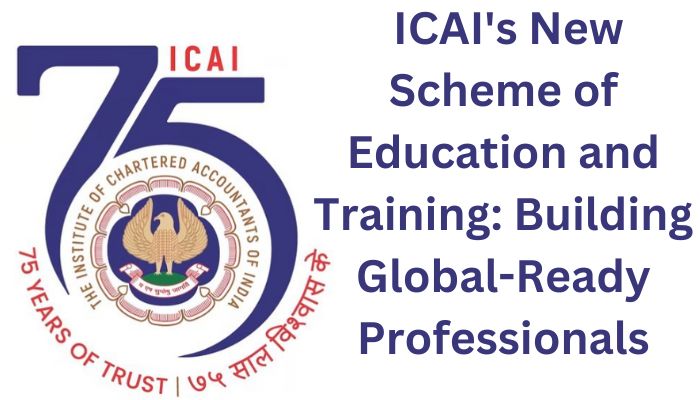The Institute of Chartered Accountants of India (ICAI) has unveiled the New Scheme of Education and Training, aligned with International Education Standards and the 2020 National Education Policy (NEP). The inaugural Foundation examination under the New Scheme is scheduled for June 2024, followed by the first Intermediate and Final Examinations in May 2024.
The formulation of this new scheme considered insights from various stakeholders and was officially published in the Gazette of India on June 22, 2023, with a launch date of July 1, 2023.
According to ICAI, “The New Scheme of Education and Training curriculum has been meticulously crafted to develop professionals ready for the global stage by imparting essential competencies. The program will feature enriched learning approaches, comprehensive skill evaluations, focused practical training, industry alignment, and a multi-disciplinary approach.”
Key Highlights of the New Scheme:
- The New Scheme introduces a seamless and concentrated two-year practical training period, including a non-examination-based industrial training lasting 9 to 12 months. The training can also be pursued in the final phase of the practical training period.
- Technology-driven learning, delivered through self-paced online modules, offering vital industry insights.
- An obligatory paper on multi-disciplinary case studies with a focus on strategic management is included at the final level. This paper assesses the application of professional knowledge across diverse subject areas and the skills acquired during practical training. It’s an open-book, case study-oriented assessment designed to evaluate the advanced thinking abilities and overall professional competence of aspiring chartered accountants.
- To sharpen the analytical skills of prospective Chartered Accountants, each subject at the Intermediate and Final levels includes assessment through case scenario/study-based multiple-choice questions (MCQs), accounting for 30 marks.
- The Final level curriculum incorporates education in ethics and information technology by integrating core subjects in these areas.
- International curriculum implementation aligns with the government’s objective of globalizing higher education.

